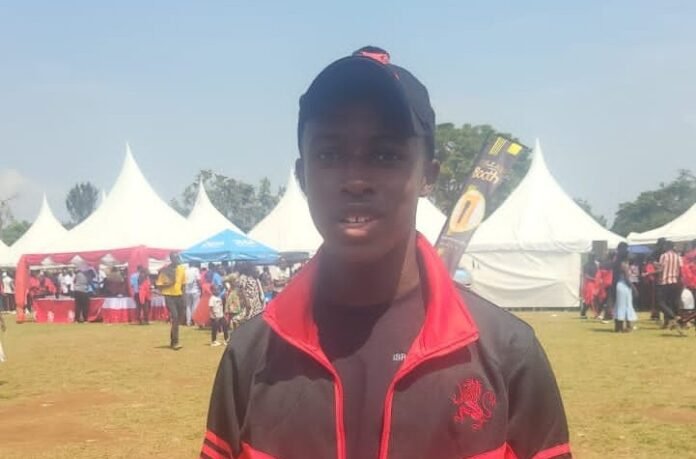By Israel Y.K. Lubogo, Senior Four, Candidate King’s College Budo
“The holiday is not mere rest—it is the crucible of destiny, the proving ground where vision confronts action, and the seeds of greatness are sown. Gakyali Mabaga—so little done, so much more to do. Time unclaimed becomes opportunity wasted; spend it with audacity, for in these fleeting weeks, the architects of tomorrow are quietly built.” Israel Y.K Lubogo
Introduction
As the final exams conclude and the halls of King’s College Budo fall into their rare, reflective silence, a question emerges: how shall one spend the holiday in a way that truly shapes the future? The holiday, often dismissed as mere leisure, is in truth a fertile period for intellectual cultivation, personal mastery, and purposeful action. Guided by Budo’s true motto, “Gakyali Mabaga”—“So little done, so much more to do”—this discourse seeks to illuminate how Ugandan students can transform these fleeting weeks into a crucible of growth, balancing knowledge, skill, reflection, and social engagement. In a time when the world rewards initiative and creativity, the holiday is not a pause in learning—it is an opportunity to transcend it.
The moment the final exam paper is handed in and the invigilator’s bell tolls, a peculiar silence descends—a silence pregnant with possibilities, dreams, and the sweet relief of liberation. Yet, liberation, if mismanaged, can become a squandered opportunity. Dear Ugandan students, this holiday is not merely a recess from books; it is a laboratory in which you can forge the foundations of your future. The question is: how shall one spend this precious interlude with genius, purpose, and joy?
1. Rediscovering Yourself: Intellectual Pilgrimage at Home
Too often, holidays are spent in passive consumption—scrolling endlessly through social media feeds or bingeing series without reflection. Let this not be your default. Instead, cultivate a habit of reading beyond the syllabus. Seek books that challenge your worldview: history, philosophy, economics, African literature, and law if you are inclined. Revisit Okot p’Bitek’s Song of Lawino, Chinua Achebe’s Things Fall Apart, or Ngugi wa Thiong’o’s works—not merely for knowledge, but for the wisdom of understanding Africa’s soul.
Journaling daily is equally transformative. Reflect on your past term: your successes, failures, and the patterns in your learning. Record your aspirations and, more importantly, design a personal roadmap. A student who journals is a student who dialogues with their future self.
2. Skill Accumulation: The Genius of Doing
Books alone will not make you future-ready. The modern Ugandan student must blend intellect with practical competence. This holiday is a laboratory for experimentation. Learn coding, graphic design, video production, or digital marketing. Engage in local entrepreneurial projects—help a small business in your community improve branding, manage social media, or optimize operations.
Uganda is rich with opportunities to learn without leaving your neighborhood. Visit local farms, eco-projects, or NGOs. Observe their operations, learn logistics, and understand the invisible economy. Genius lies in seeing the ordinary and discovering the extraordinary within it.
3. Travel, Even Locally: Geography of the Mind
Physical travel is not a luxury—it is pedagogy. Explore Uganda’s beauty not as a tourist, but as a student of life. From the misty heights of Mount Elgon to the roaring waters of Murchison Falls, every site carries lessons about ecology, history, and humanity. Engage with communities. Learn oral histories from elders; listen to their struggles and triumphs. Each story is a case study in resilience, leadership, and innovation.
Even local city explorations matter. Spend a day in Kampala’s bustling markets, not merely shopping, but observing commerce, trade dynamics, and human interactions. Take notes, ask questions, and see yourself as both participant and analyst.
4. Service and Social Responsibility: Intellectual Philanthropy
The holiday offers time to act on empathy. Volunteer: teach younger children, join community clean-up drives, or participate in literacy programs. Service sharpens emotional intelligence, a skill more crucial than rote memorization. Uganda’s greatest students are those who can read, write, and respond meaningfully to societal needs.
5. Mind and Body: Symbiotic Excellence
Genius cannot thrive in a neglected body. Exercise, walk, dance, or play sports. Uganda’s landscapes and community games offer natural arenas for physical and strategic development. A student who hones the mind but ignores the body is like a car with a full tank but flat tires. Nutrition, sleep, and disciplined routines are not mere advice—they are the architecture of sustainable brilliance.
6. Reflection and Projection: The Endgame of the Holiday
As the holiday wanes, do not merely recall fun and leisure. Engage in deliberate reflection: what did you learn, what skills did you acquire, what connections did you make, and how have you grown? Plan how to integrate these gains into the next academic term.
Write a personal manifesto: a statement of intent for the new term, infused with insights from your holiday explorations. This is not superficial planning—it is the crafting of a strategic, intellectual persona.
Conclusion: Holiday as Laboratory of the Self
Dear Ugandan student, the holiday is not a pause—it is an accelerant. It is a rare period when time belongs fully to you—free from curriculum pressures, free from grading scrutiny. Choose to inhabit it with intention, curiosity, and audacity. Invest in knowledge, skills, community, and self-reflection. By doing so, you will return to school not merely rejuvenated, but transformed—an architect of your destiny, a student of life, and a beacon to others who squandered the same time in passivity.
In the spirit of King’s College Budo:
“Gakyali Mabaga—so little done, so much more to do. Let this holiday be your laboratory of growth and your springboard to greatness.”








